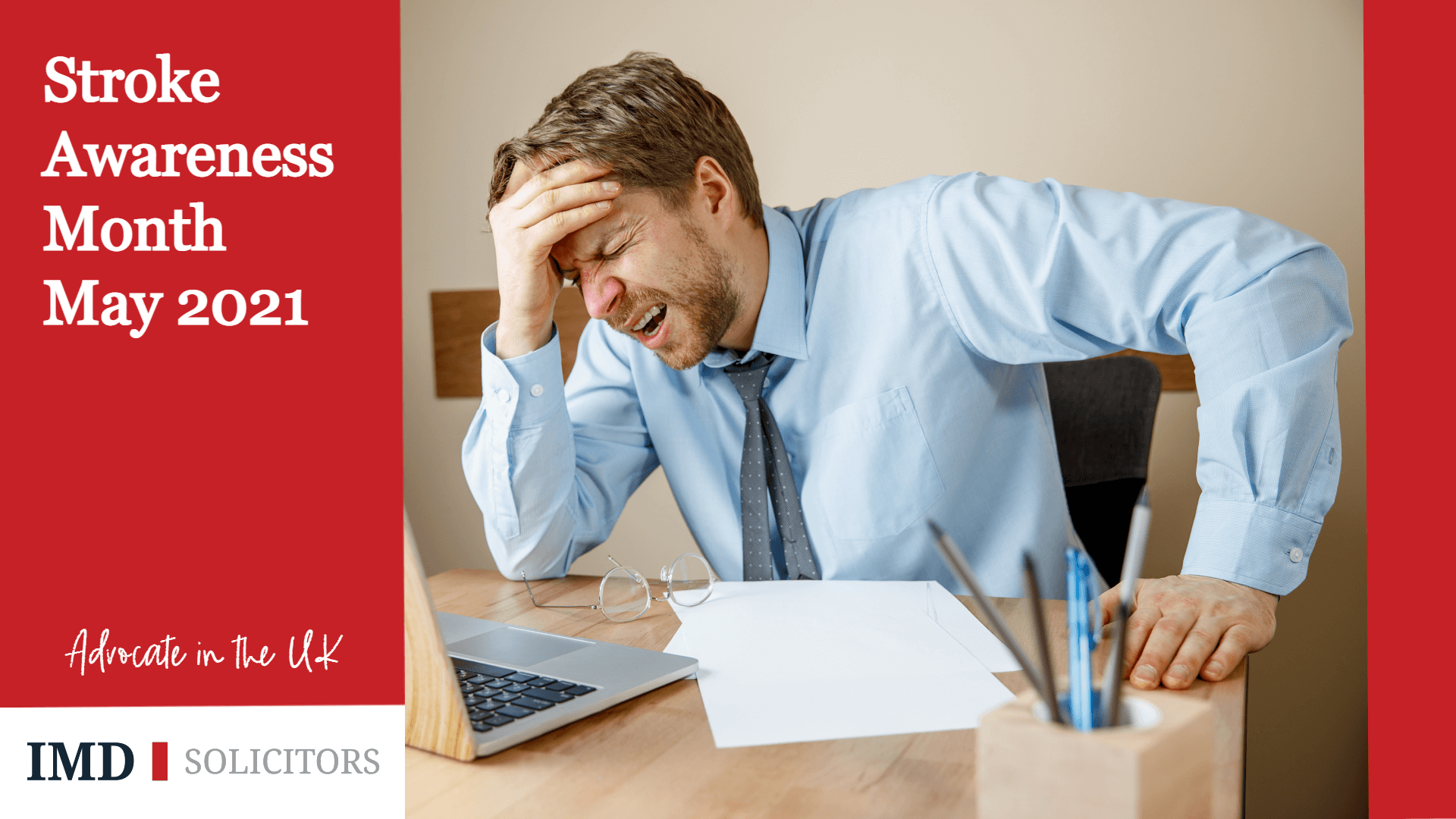
As we approach the month of May while we have all been walking through the pandemic this is an opportunity to talk about stroke awareness.
A stroke happens every 5 minutes in the UK and each year there are about 100,000 people who have a stroke with 1.2 million stroke survivors – https://www.stroke.org.uk/
Against this data we can all play our part to make a difference in many ways:
Charities like the Stroke Association do fantastic work to help survivors of stroke and their families. We all probably know someone close to us or a family where someone has had a stroke. My own father had a stroke so I know the consequences of what can happen if urgent medical help and rehabilitation does not take place. This is personal but I would say a common issue that we should all be aware of.
If not treated quickly the victim can be left with long term debilating health and mental problems. Fundraising for research is equally very important as this allows those supporting victims of stroke to rebuild their lives. It can also help with research and development to better support those affected.
A stroke when it strikes warrants urgent medical attention. You may have seen the T.V. adverts reminding us of F.A.S.T. which helps to spot the signs of a stroke.
F- stands for facial weakness where a person cannot smile and where the mouth or eyes are drooped.
A-stands for an inability to raise the arms
S-stands for speech this can be slurred and the inability to speak clearly
T-stands for IT’S TIME TO CALL 999
It is a brain attack where the blood supply to part of the brain is cut off. This can kill brain cells resulting in a change of how one feels and is able to function both mentally and physically. There is an emotional impact too where for example, a healthy and independent person becomes dependent on others for their care.
There are three types of strokes:
Ischaemic stroke- this is the most common type where blood supply to the brain is cut off.
Haemorrhagic stroke- this is where there is bleeding around the brain
TIA Transient Ischaemic attack- also known as a mini stroke where symptoms last for a short time due to a temporary loss of blood supply to the brain.
In addition to the symptoms mentioned above other symptoms could include:
Prospects of recovery vary from person to person and is dependent on the type of stroke and the timing of diagnosis as well as the start of treatment. As a Clinical negligence lawyer I have dealt with cases involving delayed diagnosis of stroke and delayed treatment. I had one case which I recall very clearly where a gentleman was taken by a friend with symptoms of TIA to the A & E. He was sent home only to return within hours having suffered another but more serious stroke attack. Those treating patients with stroke symptoms must follow the Stroke NICE guidelines to ensure the patient receives timely diagnosis and medical care.
Some stroke victims can be left with very serious long term health issues. The sooner the diagnosis is made and the patient is treated the better chances there are of a better outcome. Investigation of a stroke usually included a brain scan, CT/ MRI scan, blood pressure check, EEG and a Doppler Ultrasound to see if there is narrowing of the arteries in the neck area.
Treatment of stroke can be dependent on the severity of the stroke.
Thrombolysis- this treatment includes the breaking up of the clot that is blocking the blood supply to the brain. This treatment is usually meant to be given within 4 hours of the start of the stroke.
Thrombectomy – this is where the blood clot is extracted by surgery.
Long term consequences of a stroke can include:
There is helpful information and advice on charity websites such as the Stoke Association where these is information for those who want to fundraise for Stoke awareness month and also for those affected.
Finally, the pandemic has resulted in some NHS backlog and this may put people off from seeking medical care. A stroke is an emergency so if you see someone with the symptoms mentioned above it is time to act F.A.S.T. by calling the emergency services. Further helpful information can be found here.
If you or your loved one have suffered due to medical negligence and would like an informal chat with our medical negligence team please give us a call on 0330 107 0107 or contact us by email at clinicalnegligence@imd.co.uk and a member of our team will be more than happy to arrange a call back for a free no obligation and informal chat to see if we can help you or even signpost you as to what your options might be.
This article is for general information only and does not constitute legal or professional advice. Please note that the law may have changed since this article was published.